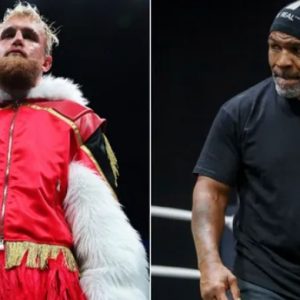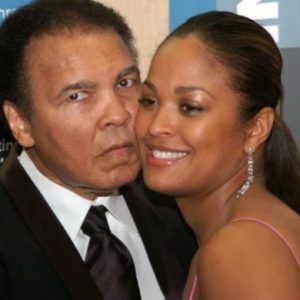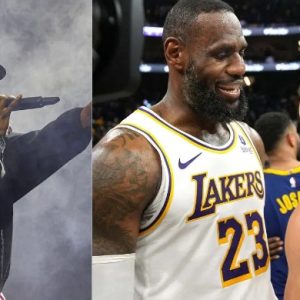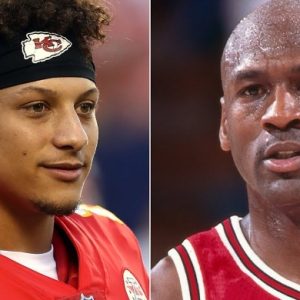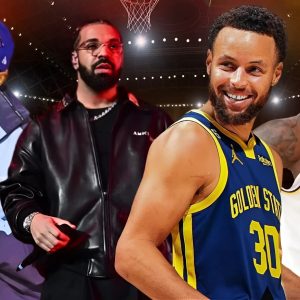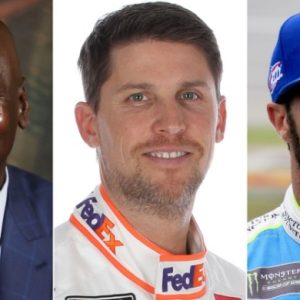In 1986, when Muhammad Ali Jr. was 14 years old, his father, the greatest boxer alive, picked up the teen for a visit.

“We got in the car, and I said I needed to stop for something to eat,” Ali Jr. recalls. “By the time I came back out, he was gone.”
Ali Jr. called his father’s new wife, Lonnie, and said, “Daddy left me up here. I don’t know why he left me.” She said she’d tell him as soon as he arrived home.
“He turned the car around and came back to pick me up,” Ali Jr. says. “I said, ‘Daddy, why did you leave me?’ He said, ‘I kind of forgot you were in the car.’ ”
Ali Jr. remembers it sadly, the moment when his dad’s Parkinson’s became apparent.
“That was the first time I actually realized something was wrong with him,” he said.
Now 41, nearly destitute and living in the dangerous Chicago neighborhood of West Englewood, Ali Jr. fears his father has now forgotten him for good — and Lonnie is keeping him from even saying a proper goodbye.

“If I saw my father right now, I’d say ‘I love you, I miss you, and I want you to see your grandkids,’” says Muhammad Jr., who lives in a two-bedroom hovel he shares with his wife, Shaakira, and two children, Ameera, 6, and Shakera, 5.
“I wished before my dad got really sick, I could have had that father-son relationship, but that’s impossible now. I wish I could have made up for lost time. But it doesn’t break my heart anymore. It’s been broken so many times, I’m used to it by now.”
Muhammad Jr. was born in 1972 in Philadelphia to Ali, then 30, and actress Belinda Boyd, who was 17. Muhammad Jr. can’t remember ever enjoying a family meal together. Mostly, his grandparents raised him, as his father was busy boxing and his mom was acting in films.
He grew up with three sisters — Maryum and twins Jamillah and Rasheda — but when they were infants, Ali began an affair with Veronica Porsche, who became his second wife in 1977.
The kids still saw their dad, and Junior fondly remembers those days as an extended family.
“My father used to do magic tricks. He’d have a handkerchief that he’d make into a cane; he’d then make it disappear. His card tricks were really good. He was such a comical person. My father liked to wear masks and scare people. He liked to have people on the edge of their seats.
“We used to go to Pennsylvania where he had a training camp, and he’d do tricks on stage. We all went. It was all the family, including my stepsisters Leila and Hana. We’d get on the Bluebird Winnebago bus and go up to see him,” Muhammad Jr. says.
“We stayed in log cabins, ride horses, watch him train, jump ropes and eat all the time as a family. He had a great cook.
“But I never went to any boxing matches apart from one when he fought Leon Spinks, and I just remember he kept on smiling even though he was getting hit a lot.
“He never wanted me to be a fighter. He said, ‘Don’t get into it if you don’t know what you’re doing, as it’s dangerous.’

“I used to see him all the time when I was a child. He made sure he was there, would get all the siblings together, and never kept us a secret from each other. I was proud of my daddy. Fame and fortune meant nothing, I just saw him as my daddy.”
But being Muhammad Ali Jr. had its pitfalls. Although his dad was conquering the world for a third time in 1978, his son was battling on the playground.
“You may think having Muhammad Ali as your dad is great, but I had problems. People wanted to pick fights. School was hell. They wanted to see if I was like my father. I’d get bullied all the time. Girls would only get with me because of my father, not because of me. Nothing was as it seemed. I didn’t know who really loved me. People just used me so they could get a glimpse of my dad. Some people didn’t like it that my dad was black or didn’t go to war. We had to fight all his battles.
“It meant my grandparents sheltered me a lot. Dad didn’t know, as he wasn’t around every day. I felt in some ways like I never had a childhood.
“I’d say my father was good and bad. The reason I say that is because my father never really spent time with me. Whenever we had time, he spent it with his daughters rather than me. Even in the only picture I have of all the family together, they’re all wrapped close, and I’m far out to the left. I felt like the outcast. I still do,” Muhammad Jr. sobs.
He says he still feels the problems of his childhood and they’re stopping him from moving on.
“He gave us money directly, anything we wanted. Everything was given to me, and I was hidden away, which has hurt me in the long run. I’m like a 12-year-old in a 41-year-old’s body now. I was always sheltered as a child, limited to what I could do, so I don’t know how to get out there and do it now,” he adds.
“I sometimes resent to this day my dad. I was cursed with this name. People wanted me to follow in my father’s footsteps, but what about my own? I want to make it myself. I don’t want to be in the shadows of someone else.
“It’s like I’m cursed. My life is cursed. I thought about even changing my name to Malik Islam and running away and starting a new life again. But my children stop me. I want to teach them and give them the discipline I never got.”
While Ali was champion of the world at age 22 and amassed a fortune of well over $100 million, his son is living off food stamps. Driving with a reporter to his local cafe for breakfast, he points excitedly at a charity shelter and says it’s his savior.
“I go there when I ain’t got no food in the crib or the kids need shoes and clothes,” he says.
“My life now is crap. I live in a s–t area, a house I don’t own. I survive off handouts and food stamps. I’ve tried for a job, but there’s no hiring. I go on the Internet, but I’ve never been taught how to use it, so it always messes up. I’m stuck. If my father was still around and was coherent, he’d help me. But that’s not the case, is it?
“If I was rich, I’d find a cure for Parkinson’s. Next thing, I’d get a big house with my father and kids and I’d take care of him.”
Muhammad Jr. says the last time he saw his father was at his dad’s birthday party in Las Vegas last year, and it was like “he was in a coma.”
“Now when you see him, his hands shake and his face is cold. His expressions are numb. It isn’t him. He had always been talkative, joking around, the soul of the party. Now he doesn’t do any of that. It’s like night and day right now,” Muhammad Jr. says. “Sometimes, you look at things and ask: ‘Did it really happen? Did he box like that? Did he talk like that?’ ”
Ali Jr. blames the breakdown in their relationship on Lonnie, his father’s fourth wife. This isn’t the first time Lonnie, whom Ali married in 1986, has been accused of tearing the family apart. Ali Sr.’s brother, Rahman, spoke out last year about not being able to see his brother and the treatment his sibling was receiving.
Muhammad Jr. says: “He slipped out of my life the moment he got married to Lonnie. The trips to see me stopped immediately. She once said that they couldn’t afford to come and see me. How can a man who’s well respected in the world, bigger than Elvis, with all the money he’s made, not afford to travel?”
Lonnie, who has power of attorney, has made it clear Ali Jr. is not welcome, he says. When he phoned his father on Ali Sr.’s birthday, Jan. 17, no one answered.
Muhammad Jr. thinks his dad, now 72, won’t make it to his next birthday — “not a chance” — and hopes the day will come when the greatest living sportsman’s pain will finally ebb away.
“I just want, hope and pray to God that that awful disease takes my dad sooner rather than later. Takes him away from all the suffering he’s in. It’d be really sad to see him go, but everything is for the best, and I will see him again in heaven,” he says.
“I have no regrets in life apart from one. I regret not being able to call him on his birthday and wish him happy birthday, tell my daddy I love him. It may be his last birthday, and this is when you should be with your father the most. I love you, Daddy.”
